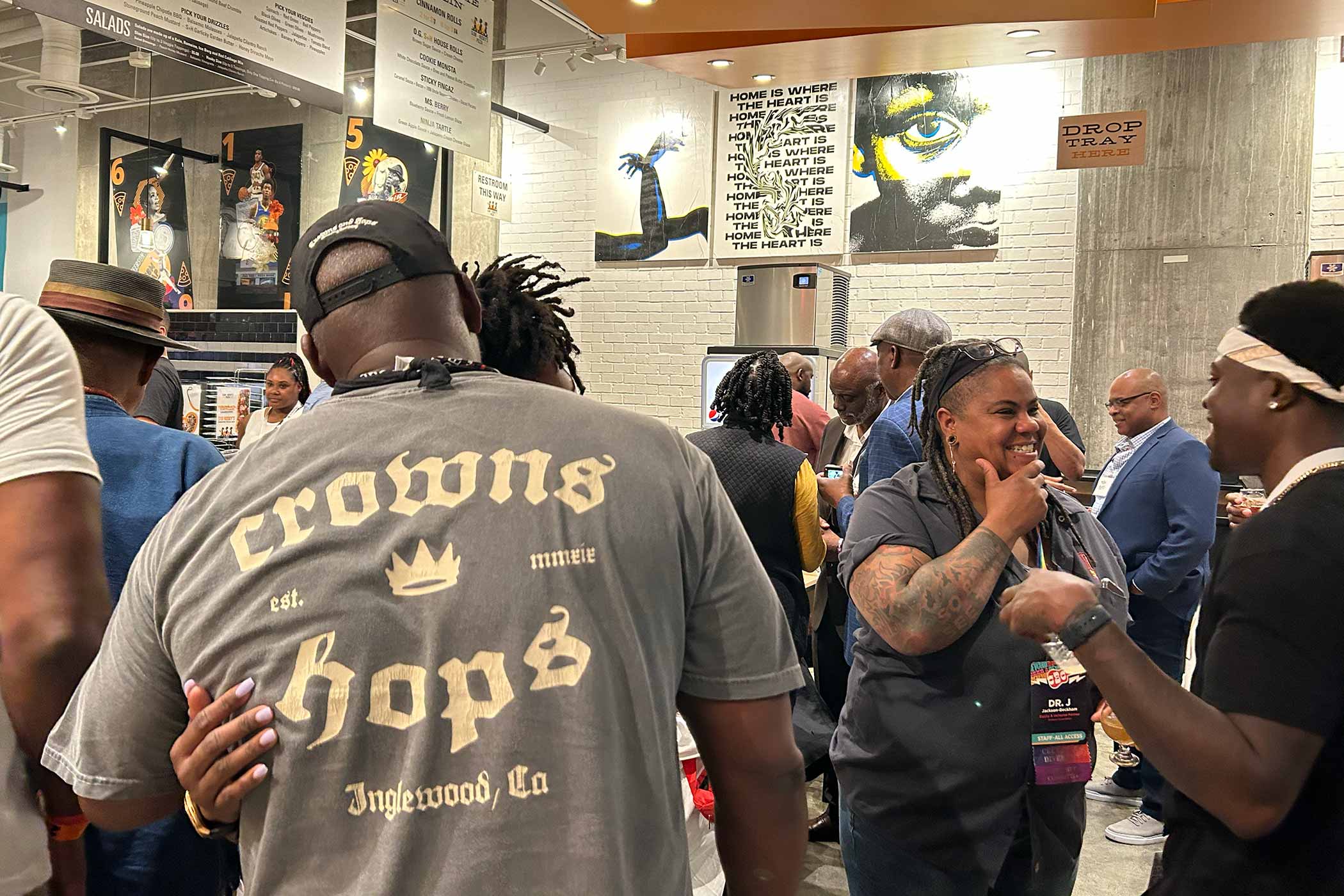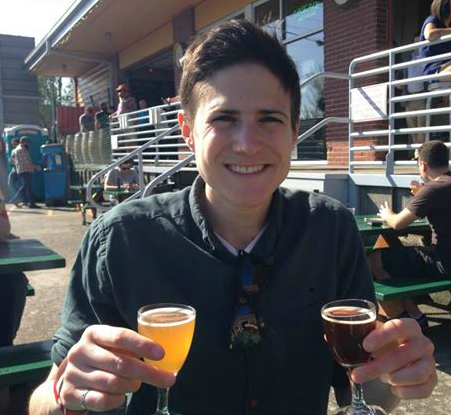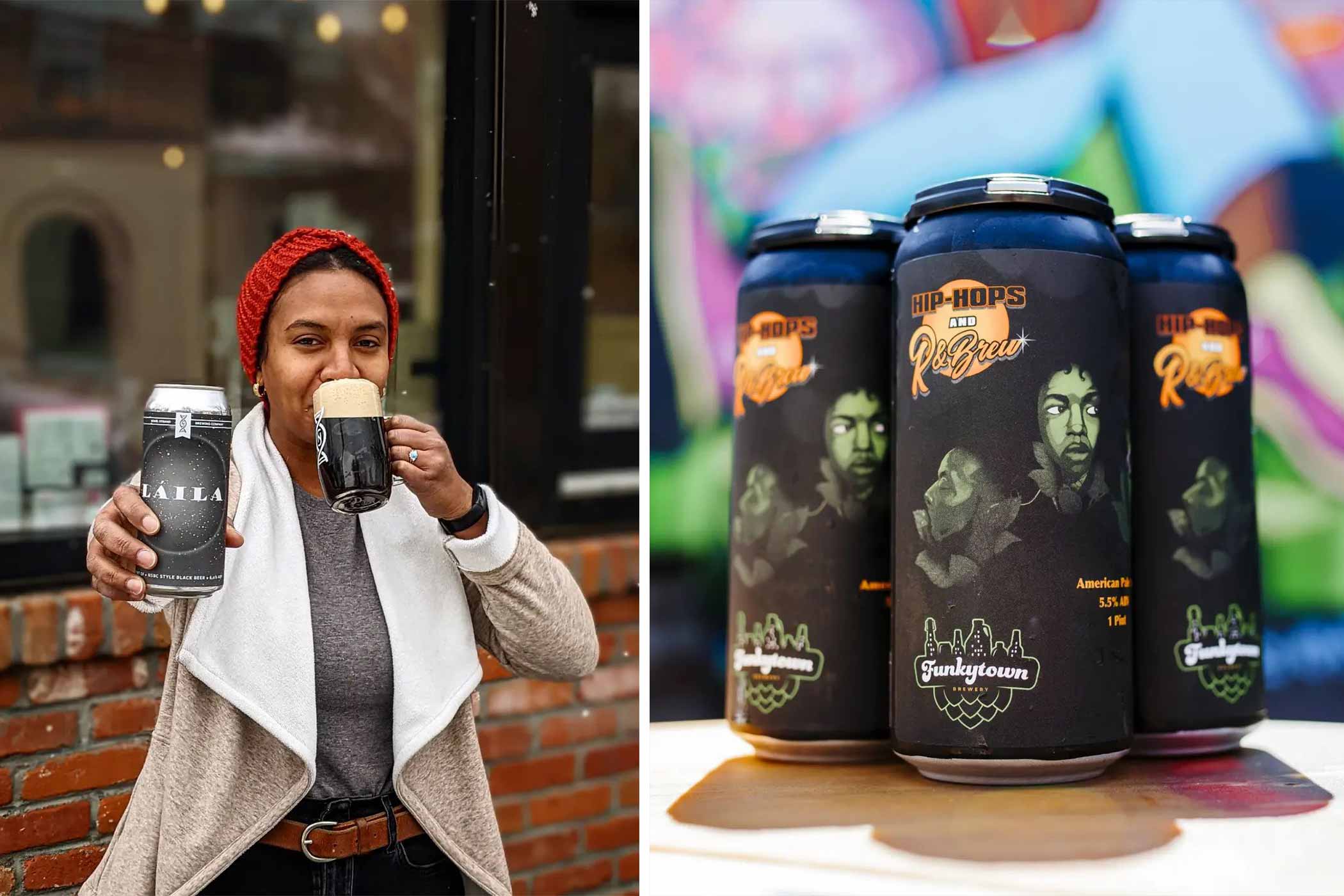Shop
The National Black Brewers Association Explodes Into Craft Beer With a Bang
A big first for craft beer.
The buzz rose from a low rumble to an ear-numbing roar as more and more people crowded into Slim & Husky’s on Broadway in Nashville, TN. With ice tubs of beer to our left and pieces of pizza in front of us, I strolled over to the beer, picking out a Peoples Beer from Oak Park Brewing Company. The American light lager brewed by Oak Park Brew Co. Founder Kevin Johnson nods to Peoples Brewing Co, the first African American-owned brewery in the country started by Theodore Mack Sr. Sipping on the historic beer, I looked around. I saw people laughing, intensely chatting, and even crying. The air was so charged that, as Michael James Jackson Foundation Founder and Chair Garrett Oliver later said, “We shorted out the air conditioning; it cracked up out of the room and destroyed everything.” This bottle share celebrating the official formation of the first-ever National Black Brewers Association would be one of the most impactful events I attended at the Craft Brewers Conference last week.
“To start this journey five years ago and be here at CBC, the largest craft beer conference in the country…it really is surreal,” Rhythm Brewing Co. Founder Alisa Bowens-Mercado told me. “Now I know that the work being done is not in vain. There is a lot of work to do, but collectively knowing that we’re all going in the right direction gives me even more drive.”
Drive that will be necessary to turn the tide of a predominantly white cis-male industry. According to a 2019 Brewers Association Benchmarking Survey, less than one percent of all breweries are Black-owned.
Suppose we do some back-of-the-napkin math; with 9,500 breweries now operating in the country, that nets out to only ninety-five Black-owned breweries in the U.S. Newly appointed National Black Brewers Association Executive Director Kevin Asato, who has thirty years of experience in the beverage industry, shared with me that number actually lands around 117 breweries.
In an industry that made nearly $29 billion in beer sales in 2022, that’s a tiny piece of the pie enjoyed by the BIPOC community.
And for years, not a single organization existed to help African American brewers and brewery owners try and turn that tide.
Until now.
With the National Black Brewers Association now operating in full force, hopefully that tide will continue to rise.
What Is the National Black Brewers Association
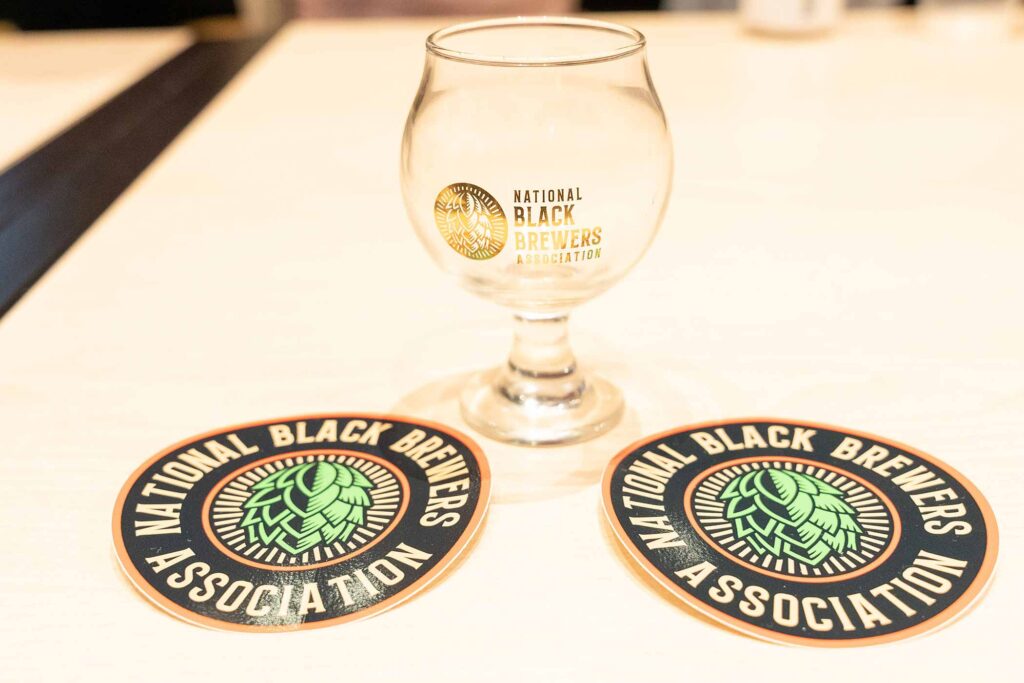
Photography courtesy of the Law of Aces Film | National Black Brewers Association
Started by Johnson (who also happens to be the former Mayor of Sacramento, CA, in addition to the founder of Oak Park Brew Co.), the National Black Brewers Association (NB2A) strives for four things (per the membership’s website):
1. Promote the Black brewing community as a first-of-its-kind organization.
2. Increase the number of African Americans in the brewing industry at all levels of production, especially ownership and brewmaster.
3. Exercise political influence by developing and advocating for effective policy.
4. Foster an understanding of the history and legacy of African American brewing in the United States.
“Black brewery ownership should be more representative of the demographic of Black people in the United States,” says Asato.”We believe ownership is one of the metrics that not only can be measured, but quite frankly, is something that generational wealth can be derived from, passed down and carried on through the Black community for generations to come.”
Bowens-Mercado, who serves on the Board of Directors for NB2A, agrees. “It’s about ownership,” she says. “The National Black Brewers Association added a whole other level to what we are doing, and I’m so excited about what we’re doing in the space.”
Bowens-Mercado is no stranger to being out alone, always moving to the rhythm of her own feet.
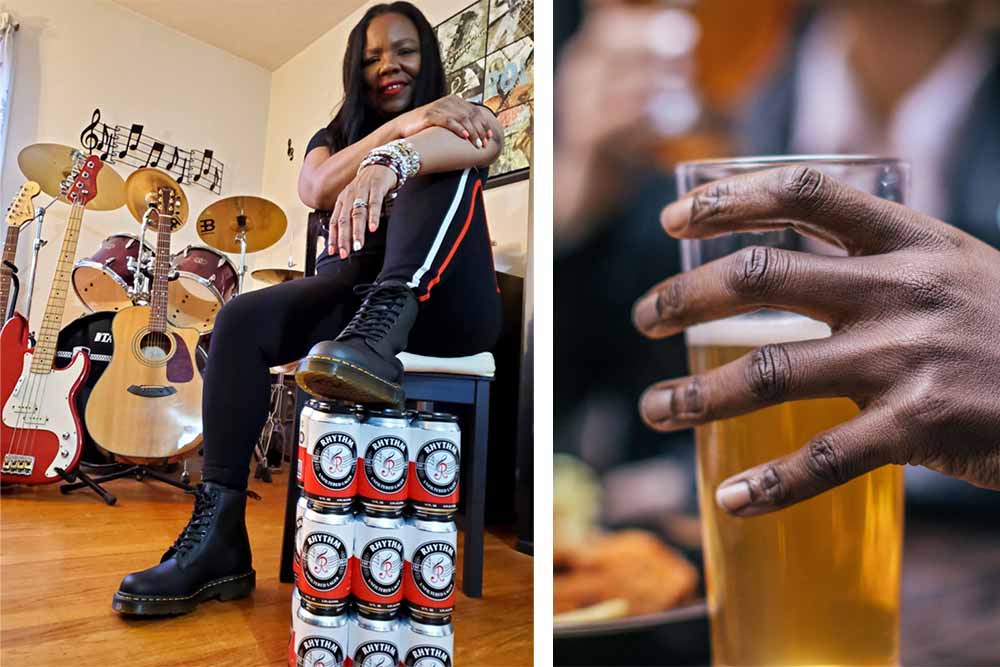
Photography courtesy of (from left to right) Rhythm Brewing Co. and the National Black Brewers Association
As the only Black- and women-owned brewery in Connecticut, Bowens-Mercado started Rhythm Brewing because, as she attended more and more beer festivals, she simply couldn’t find folx who looked like her.
A professional salsa dancer, Bowens-Mercado’s dance studio called Alisa’s House of Salsa has created a space for over twenty years where people of all backgrounds, ethnicities, genders, and sexualities unite to do one thing: dance.
In March 2018, Bowens-Mercado started Rhythm to do the same—just with beer.
But the journey hasn’t been easy by any means, so knowing that she now has a solid support system, a professional entity to watch her and other Black brewers’ and brewery owners’ backs, makes all the difference.
After all, a band plays best when all the pieces are in tune together, right?
The NB2A can be that “collection point or hub,” as Asato called it to “bring those resources together for the Black community and actually continue to give them a voice.”
“Collectively, we know that the time is now … There is a need right now to amplify our voices,” Bowens-Mercado told me at the bottle share. “And now we have the power behind it.”
Who Is a Part of the National Black Brewers Association?
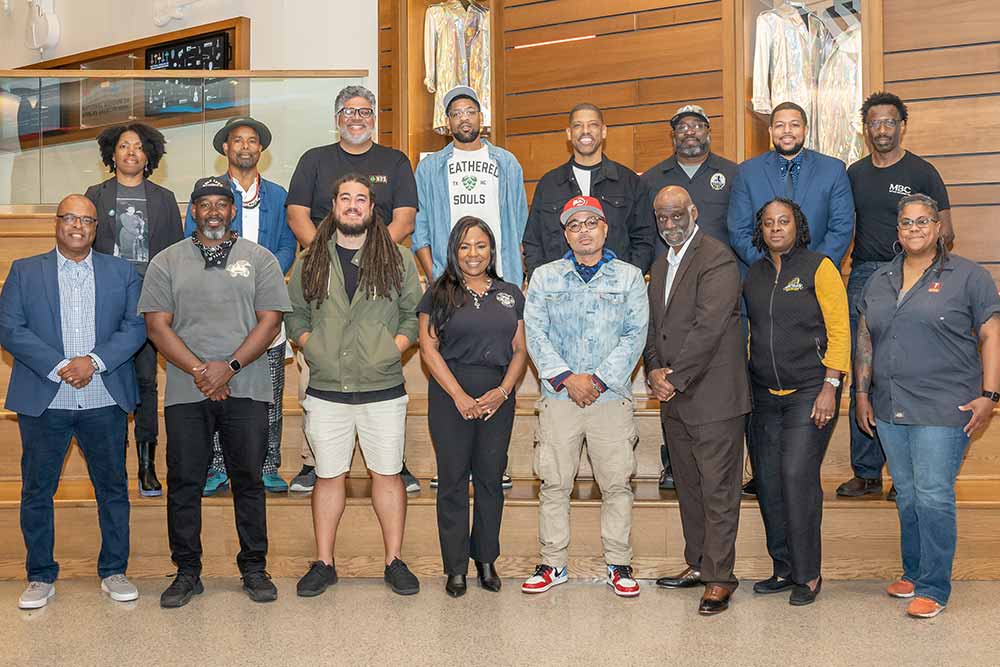
Photography courtesy of Law of Aces Film | National Black Brewers Association
At the CBC, the NB2A announced that Asato would serve as the organization’s first executive director.
“I am honored to be selected as the first executive director and to build the foundation that will fuel the growth of Black-owned breweries, membership into the organization, and celebrate the history and accomplishments of the Black brewers of America,” Asato said in a press release.
Backing up Asato will be a board of directors helmed by some of the most revered brewers in the country, including Weathered Souls Brewing Co. Co-Founder and Black Is Beautiful Founder Marcus Baskervilles, Green Bench Brewing Company Founder Khris Johnson, Crafted For All Founder Dr. J. Jackson Beckham, and Harlem Brewing Company Founder and first Black female brewery owner in the country Celeste Beatty, to name a few.
To see the complete list, visit here.
“I’m awed every day, and I say that simply because the technical knowledge and sheer industry knowledge is deep with this group,” says Asato. “The passion to see Black people succeed is ingrained independently, but the thing that blows me away is the respect and reverence that some of these board members get from the entire industry.”
What’s Up Next for the National Black Brewers Association?
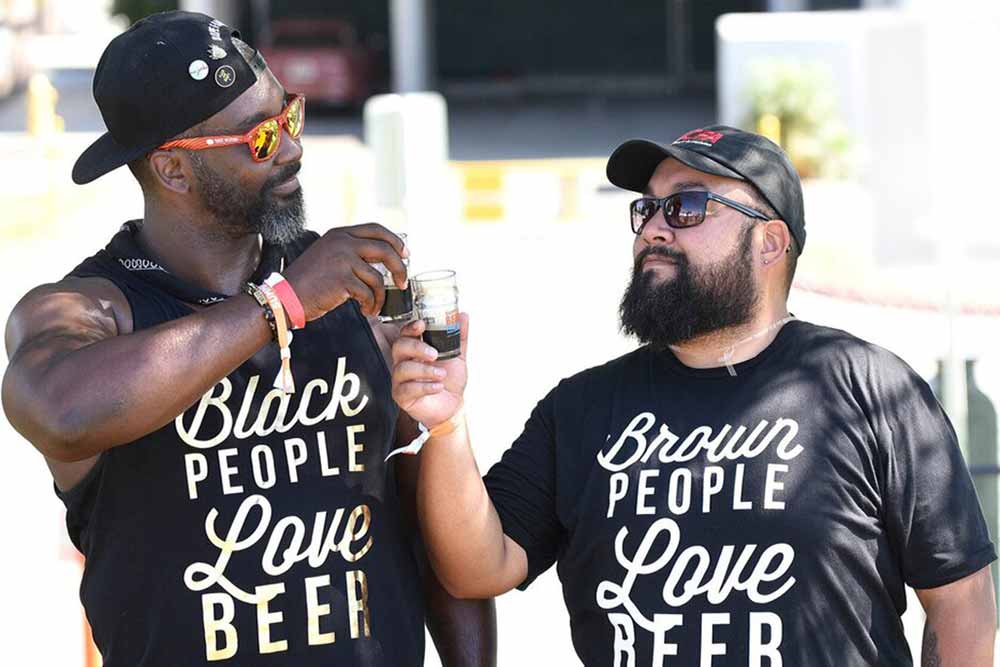
Crowns & Hops Co-Founder Teo Hunter | Photography courtesy of The Michael James Jackson Foundation | Crowns & Hops
Asato knows that he has a monumental job in front of him, but he feels up to the challenge.
“My job is to do them right, to bring their passions to life the right way, the sustainable way and to truly create that foundation and structure that does allow for it to live on for years and years down the road,” he says. “I like to say that we can do anything, we just can’t do everything.
So to start, the NB2A will focus on two main initiatives.
The first will be organizing a National Black Brewers Day celebrated in ten jurisdictions (cities or states) on October 10th. The day will recognize Theodore Mack Sr., as the first African American brewery owner in the country.
Additionally, Asato says developing relationships with Black legislators will be key. “By no fault of [their own] they don’t know the financial impact, the revenue impact, and the job capabilities of this brewing industry specific to the Black community,” he says. “We need to arm them with that information so that when policies are being made or challenged they have the information that makes a significant impact in the Black brewing community.”
Both of these plans will help the NB2A reach its goal to be a respected, impactful organization creating actual change for the Black community in beer.
Let the Party Begin for the National Black Brewers Association
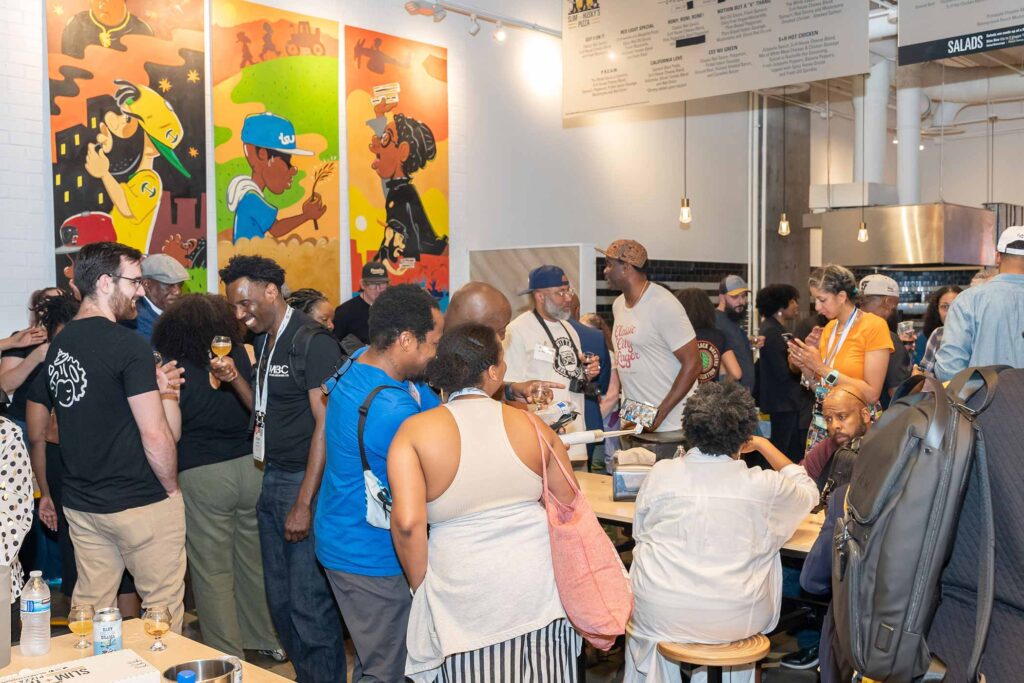
Photography courtesy of Law of Aces Film | the National Black Brewers Association
By the time I left the bottle share around 9:30 pm, the palpable energy and excitement were still going strong (and yes, the AC was still on the fritz).
But today, tomorrow, one week in the future, one month down the line, a year from now and beyond, the real work will continue.
“The question we have to ask ourselves is will it be different,” Oliver questioned everyone at the bottle share. “Will Blackness actually mean something in your work and the way you bring yourself through the world and then have people look up to who we are?”
A challenge for sure, considering we live in a capitalist society that favors making money (and making money for people who look a certain way), but Oliver and world-renowned beer authority and award-winning journalist Ale Sharpton encouraged everyone that now is the time to unite.
“This is the first time we could work together, not be crabs in a bucket,” remarked Sharpton. “Let’s work. There’s money for everybody.”
With optimism in the air, beers in hands, and a thundering cheers, the National Black Brewers Association was off and running.
“Basically, everybody wants to win that national ring; I want to get some championship rings under my belt for diversity and inclusion in craft beer,” says Bowens-Mercado. “Let the party begin!”

